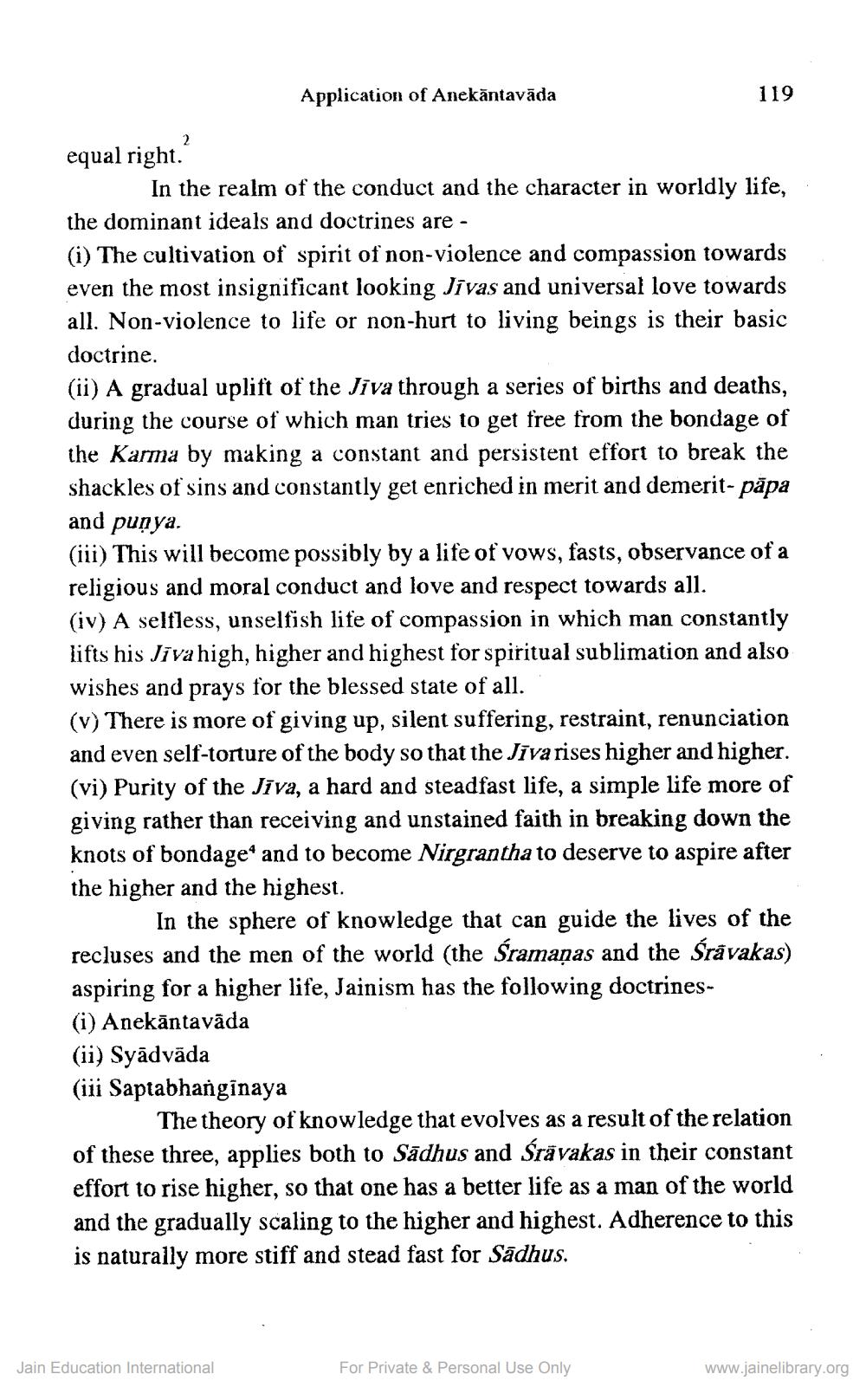________________
Application of Anekāntavāda
119
equal right.
In the realm of the conduct and the character in worldly life, the dominant ideals and doctrines are - (i) The cultivation of spirit of non-violence and compassion towards even the most insignificant looking Jivas and universal love towards all. Non-violence to life or non-hurt to living beings is their basic doctrine. (ii) A gradual uplift of the Jiva through a series of births and deaths, during the course of which man tries to get free from the bondage of the Karma by making a constant and persistent effort to break the shackles of sins and constantly get enriched in merit and demerit- pāpa and punya. (iii) This will become possibly by a life of vows, fasts, observance of a religious and moral conduct and love and respect towards all. (iv) A selfless, unselfish life of compassion in which man constantly lifts his Jiva high, higher and highest for spiritual sublimation and also wishes and prays for the blessed state of all. (v) There is more of giving up, silent suffering, restraint, renunciation and even self-torture of the body so that the Jīva rises higher and higher. (vi) Purity of the Jiva, a hard and steadfast life, a simple life more of giving rather than receiving and unstained faith in breaking down the knots of bondage and to become Nirgrantha to deserve to aspire after the higher and the highest.
In the sphere of knowledge that can guide the lives of the recluses and the men of the world (the Śramaņas and the Sravakas) aspiring for a higher life, Jainism has the following doctrines(i) Anekāntavāda (ii) Syādvāda (iii Saptabhanginaya
The theory of knowledge that evolves as a result of the relation of these three, applies both to Sādhus and Srävakas in their constant effort to rise higher, so that one has a better life as a man of the world and the gradually scaling to the higher and highest. Adherence to this is naturally more stiff and stead fast for Sadhus.
Jain Education International
For Private & Personal Use Only
www.jainelibrary.org




